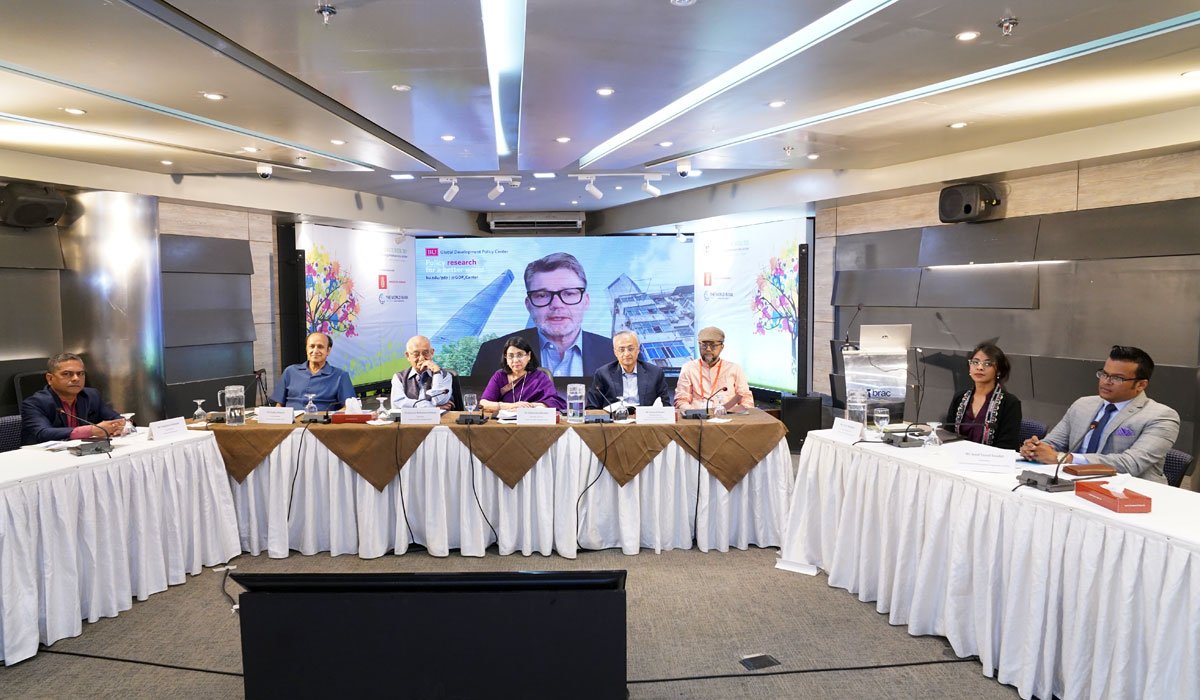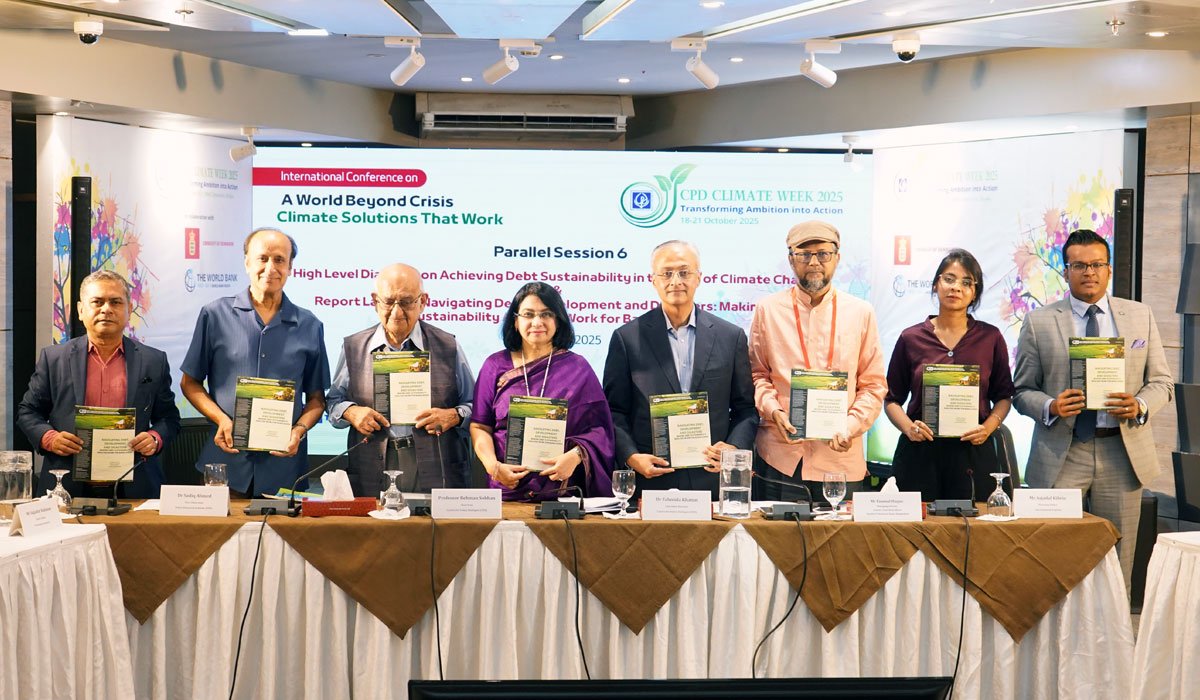
As climate shocks increasingly threaten fiscal stability, Bangladesh is pushing for a shift toward debt strategies that integrate resilience and sustainability. The Parallel Session 6, “High-Level Dialogue on Achieving Debt Sustainability in the Face of Climate Change,” held on Saturday, 18 October 2025, as part of CPD Climate Week 2025, brought together economists, policymakers, and international experts to examine how climate vulnerability is reshaping debt dynamics in developing economies.
The session—followed by the launch of the report “Navigating Debt, Development and Disasters: Making Debt Sustainability Analyses Work for Bangladesh”—highlighted the urgent need for a new global financial architecture, domestic fiscal reforms, and innovative, climate-linked debt instruments to ensure that countries like Bangladesh can pursue sustainable growth without compromising economic stability.

Dr Fahmida Khatun, observed that climate losses are increasingly shaping fiscal outcomes and should be reflected in debt assessments. Insights from the new CPD study underscored that traditional analyses underestimate the fiscal strain from disasters, variable interest rates, and export shocks—calling for climate-sensitive debt modelling and more concessional financing.
“Climate-vulnerable countries should not be penalised for investing in resilience,” argued Dr Kevin Gallagher of Boston University, calling for urgent reforms in global debt surveillance frameworks such as the IMF’s Debt Sustainability Analyses (DSAs). He stressed that these systems must “recognise climate resilience as an investment, not a liability,” and incorporate vulnerability indices into debt assessments to ensure fairer fiscal treatment for developing nations.

Echoing this sentiment, Professor Rehman Sobhan, Chairman of CPD, reflected on the moral paradox of the current system. He noted that it is “a profound injustice that nations like Bangladesh must borrow to survive crises they did not create.” Professor Sobhan urged international institutions to rethink debt conditionalities and advocated for grant-based and concessional financing mechanisms that allow climate-affected countries to build resilience without deepening their debt burdens.
At the national level, Dr Sadiq Ahmed, Vice Chairman, Policy Research Institute (PRI), stressed stronger public investment efficiency and Mr Enamul Huque, Managing Director, Country Chief Risk Officer, Standard Chartered Bank, Bangladesh, highlighted the role of banks in green finance.
Mr Sajjadur Rahman, Deputy Editor at The Business Standard, noted that public trust in debt management depends on transparency and accountability, warning that “opaque fiscal decisions can erode both investor confidence and citizen support.”

Echoing this view, Mr Asjadul Kibria, Planning Editor at The Financial Express, stressed that debt sustainability is not only an economic issue but also a matter of social equity, adding that “people must see that borrowed resources are improving lives, not deepening inequality.”
Online panellists offered global perspectives on aligning fiscal and climate priorities. Dr Rishikesh Ram Bhandary, Boston University Global Development Policy Center, urged integrating climate risks into national debt assessments.
Dr Howard Haughton, finance and governance expert, called for stronger institutional accountability and inclusive decision-making. Mr Jwala Rambarran, Financial Futures Center and Climate Works Foundation, stressed that “true debt sustainability must include social resilience and equity.”
Across the sessions, one message stood out — Bangladesh and its partners must move decisively from climate pledges to practical, inclusive, and well-financed action that turns ambition into measurable resilience.
🌎 Check out all session web posts and videos of the international conference “A World Beyond Crisis: Climate Solutions That Work.”
- Inaugural Session | A World Beyond Crisis: Climate Solutions That Work
Web post | Video - Opening Plenary | Road to COP30: How Can National Interests Be Aligned with Global Climate Goals?
Web post | Video - Parallel Session 1 | Operationalising NDCs in Climate Vulnerable Countries
Web post | Video - Parallel Session 2 | Climate and Gender: Integrating Equity in Policies
Web post | Video - Parallel Session 3 | Carbon Pricing and Carbon Markets in Bangladesh
Web post | Video - Parallel Session 4 | Climate-smart Agriculture and Food Security
Web post | Video - Parallel Session 5 | Climate Finance, Landscape, Policy and Governance
Web post | Video - Parallel Session 6 | High Level Dialogue on Achieving Debt Sustainability in the Face of Climate Change
Web post | Video


